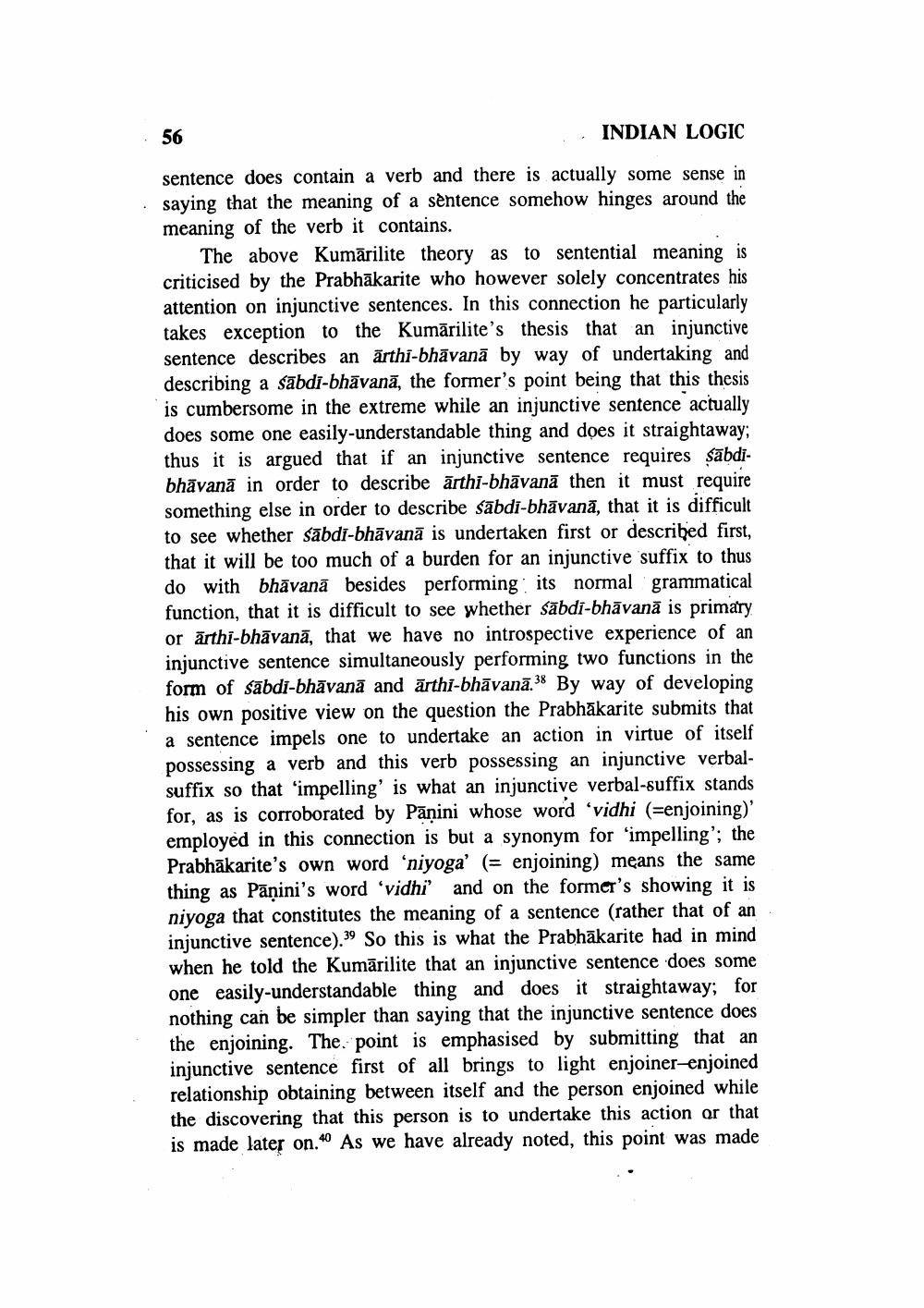________________
56
INDIAN LOGIC
sentence does contain a verb and there is actually some sense in saying that the meaning of a sentence somehow hinges around the meaning of the verb it contains.
The above Kumārilite theory as to sentential meaning is criticised by the Prabhākarite who however solely concentrates his attention on injunctive sentences. In this connection he particularly takes exception to the Kumārilite's thesis that an injunctive sentence describes an arthi-bhāvanā by way of undertaking and describing a sābdi-bhāvanā, the former's point being that this thesis is cumbersome in the extreme while an injunctive sentence actually does some one easily-understandable thing and does it straightaway; thus it is argued that if an injunctive sentence requires sābdibhāvanā in order to describe ārthi-bhāvanā then it must require something else in order to describe sābdi-bhāvanā, that it is difficult to see whether sābdi-bhāvanā is undertaken first or described first, that it will be too much of a burden for an injunctive suffix to thus do with bhāvanā besides performing its normal grammatical function, that it is difficult to see whether sābdi-bhāvanā is primary or ärthi-bhāvanā, that we have no introspective experience of an injunctive sentence simultaneously performing two functions in the form of sābdi-bhāvanā and ārthi-bhāvanā. 38 By way of developing his own positive view on the question the Prabhākarite submits that a sentence impels one to undertake an action in virtue of itself possessing a verb and this verb possessing an injunctive verbalsuffix so that 'impelling' is what an injunctive verbal-suffix stands for, as is corroborated by Panini whose word 'vidhi (=enjoining)' employed in this connection is but a synonym for 'impelling'; the Prabhākarite's own word 'niyoga' (= enjoining) means the same thing as Panini's word 'vidhi' and on the former's showing it is niyoga that constitutes the meaning of a sentence (rather that of an injunctive sentence).39 So this is what the Prabhākarite had in mind when he told the Kumārilite that an injunctive sentence does some one easily-understandable thing and does it straightaway; for nothing can be simpler than saying that the injunctive sentence does the enjoining. The point is emphasised by submitting that an injunctive sentence first of all brings to light enjoiner-enjoined relationship obtaining between itself and the person enjoined while the discovering that this person is to undertake this action or that is made later on.40 As we have already noted, this point was made




